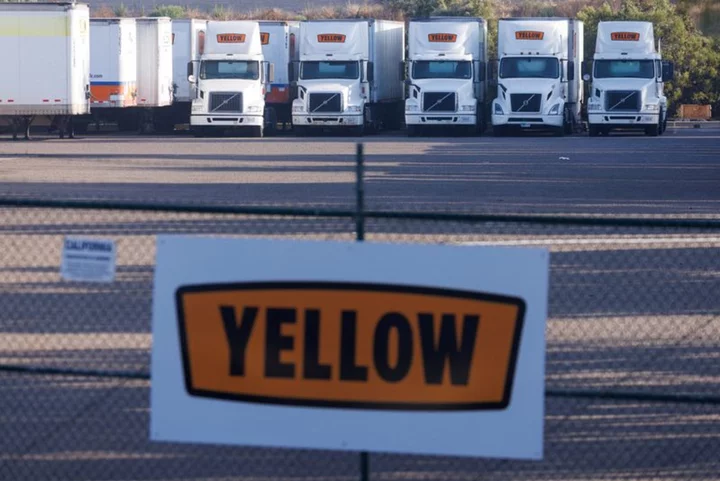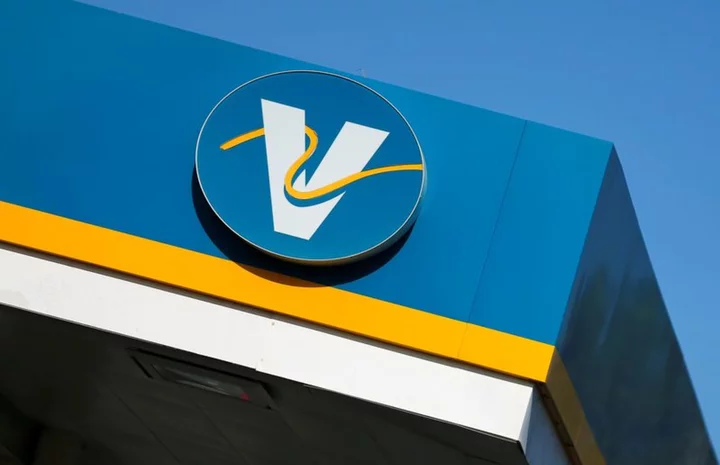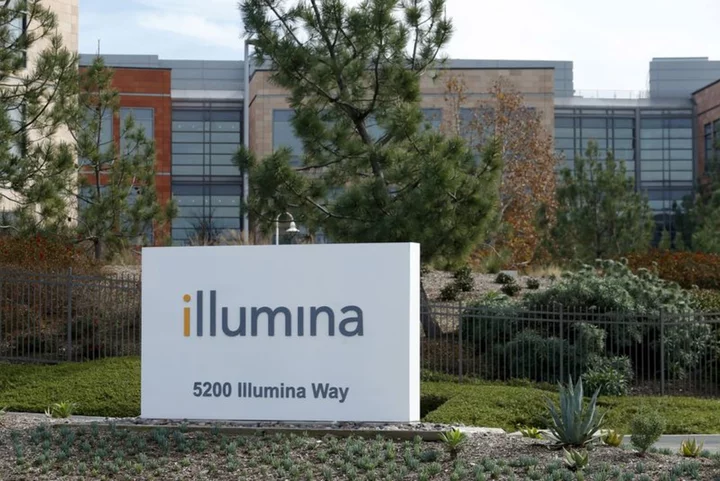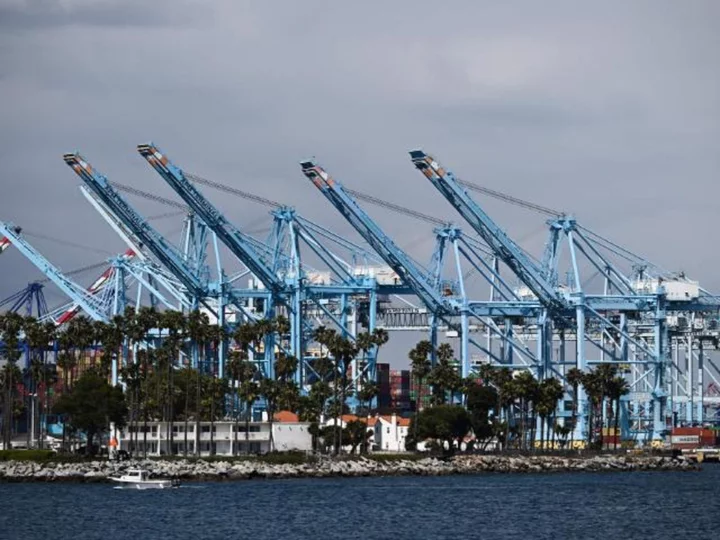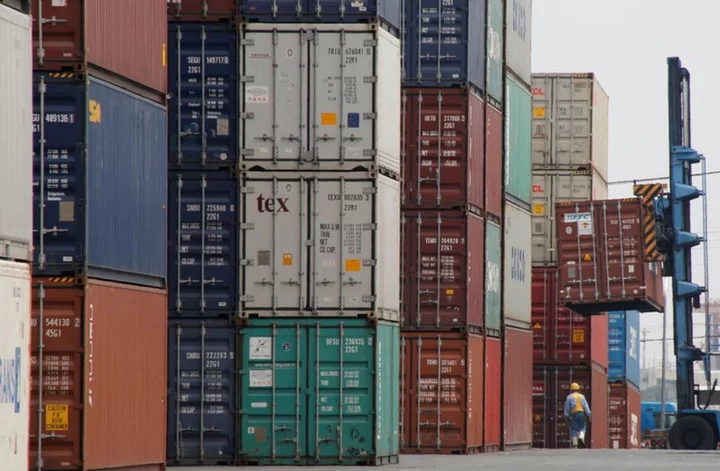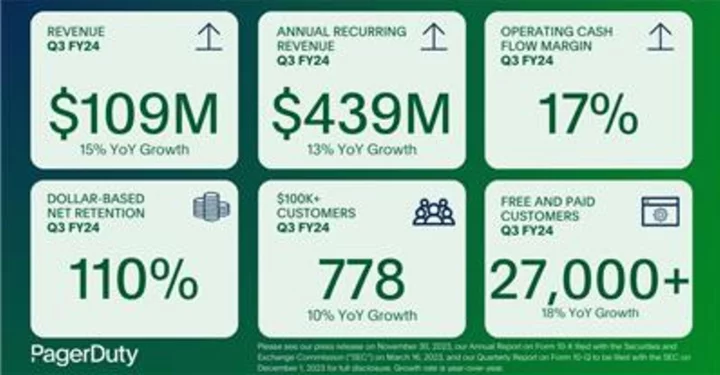By Lisa Baertlein
Former customers of bankrupt trucking firm Yellow can expect to see rates rise at least 10%-20% from the rock-bottom levels that helped usher in the demise of that nearly 100-year-old firm, industry analysts and executives said on Friday.
Yellow, formerly known as YRC, was one of the largest U.S. trucking firms and a leader in the "less-than-truckload" (LTL) market that combines shipments from multiple customers on a single truck. Rivals who are picking up Yellow's business say they are not dropping their own prices do so.
Two long-time industry executives told Reuters that Yellow's rates were roughly 10% to 20% below those of rivals. Loads in the so-called LTL market do not trade on the spot market and they vary based on the type and size of shipments, they said.
"Yellow was way below" market rates, said Ken Adamo, chief of analytics at DAT Freight and Analytics, which operates one of North America's largest truck freight marketplaces.
Former Yellow customers should expect to see rates rise at least that much to reach market parity, said Chris Pickett, an analyst and chief operating officer at Flock Freight, which matches shippers to fill up individual trucks.
That, however, may not be the end of the increases, Pickett said. Unlike the highly fragmented trucking market, LTL is dominated by about a dozen players. Those companies have more pricing power, and with Yellow gone there is less competition for the freight they handle.
Some providers are already raising rates, which could send LTL rates up 10% to 15% from current levels, Pickett said. "That's going to create some sticker shock."
Large companies like Walmart, Amazon.com and Home Depot will likely see the smallest rate increases as they shift cargo from Yellow.
Savvy customers like those likely locked up new carriers prior to Yellow's bankruptcy on Aug. 7, Adamo said.
Yellow has blamed the International Brotherhood of Teamsters union for its failure. But the union and analysts blamed mismanagement, saying the debt-laden company's sub-market rates made it difficult to offset the high cost of running the companies it bought as separate entities.
Now rival trucking firms like Forward Air are benefiting from Yellow's failure.
Forward Air picked up some of Yellow's business, CEO Thomas Schmitt said on the company's Aug. 3 earnings call.
"Yellow leaving the market will further accentuate pricing discipline ... I do believe the bottom is behind us," Schmitt said of the sector's current "freight recession."
(Reporting by Lisa Baertlein in Los Angeles; Editing by Marguerita Choy)

